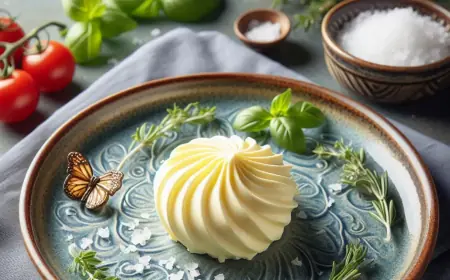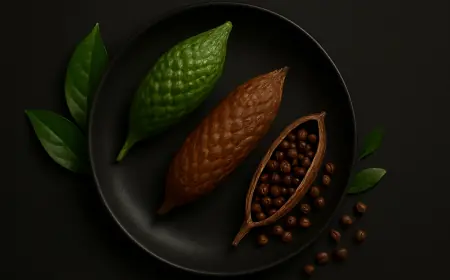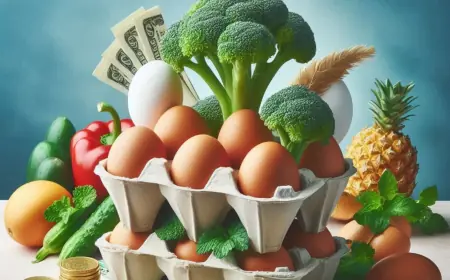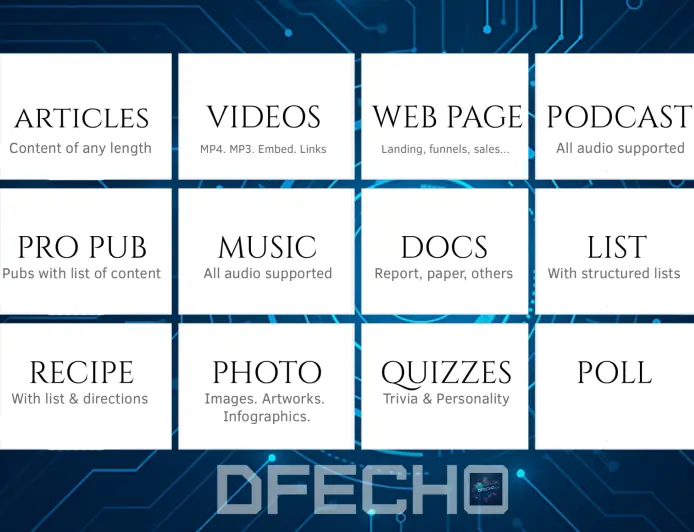Foodless Wealth: Africa’s Rich Food Heritage vs. Imported Junk Foods
Africa isn’t starving—but it’s trading health for processed, expensive imports. The real food crisis is a crisis of choice, driven by decades of colonial brainwashing. *Comment anonymously here on Dfecho.
When I first arrived in West Africa, I was stunned—not by scarcity, but by abundance. The markets overflowed with vibrant vegetables, superfoods, nutrient-rich grains, seeds, healing herbs, and medicinal plants. These weren’t exotic superfoods with inflated price tags. They were ordinary, daily staples—affordable, accessible, and astonishingly powerful. Years later, I’m still discovering more. It feels endless.
The story of a local bone-setting practitioner
But one moment etched itself into my memory. I was in Abidjan, Ivory Coast, when a man broke his leg and was turned away from a hospital. He couldn’t afford the larger facility, so he was taken to a local bone-setting practitioner from Niger. Curious, I went along. What I witnessed was nothing short of miraculous: using a horn, the practitioner performed a traditional operation, straightened the leg, and cleaned the wound with alum-infused water. He prescribed healing diets for the man, herbal tea, quail eggs (shell included) and cooked pineapple peels among the recommended foods—and the entire treatment cost less than $20. That was it—the man was free to go home. When I checked on him three weeks later, he didn’t even look like someone who had recently broken a leg.
That day, I felt both awe and discomfort. Awe at the brilliance of African heritage. Discomfort at how deeply it’s been dismissed. Even many of the traditional foods people are consuming—pounded yam, palm oil, vegetable oil, and many more—aren’t even locally sourced anymore. And the pharmaceutical drugs, and beauty products? Often unnecessary, yet widely consumed with blind trust.
There isn’t a food crisis in Africa
There isn’t a food crisis in Africa. There’s a crisis of identity, of politics, of perception. The question we should be asking isn’t just what we eat—but who decides what we eat. Our food choices are shaped by forces far beyond hunger. As the Nigerian dietitian Michelle points out, the real issue is the cultural shift away from traditional, healing foods toward ultra-processed, imported junk.
The crisis isn’t about scarcity—it’s about the abandonment of Africa’s rich, medicinal food heritage. This erosion has been shaped by decades of colonial influence, aggressive modern marketing, and the viral spread of misinformation on social media. What was once a deeply rooted culinary identity is now being overwritten by imported ideals of convenience, aesthetics, and status—often at the expense of health, culture, and sovereignty.
Let food be thy medicine and medicine be thy food
I’ve lived in Africa for nearly eight years. I haven’t needed a doctor once—not because of luck, but because I’ve embraced the continent’s true wealth: its food. It’s time we rethink what we eat, the drugs, products, what we trust, and what we’ve been told to abandon. Africa’s food isn’t just nourishment—it’s medicine. And it works like magic.
Reclaiming African Food Sovereignty
Africa doesn’t need to import health—it already grows it. From the nutrient-dense grains of fonio and millet to the healing properties of moringa, baobab, bitter leaf, and fermented foods, the continent’s culinary heritage is a pharmacy disguised as a kitchen. Yet, these treasures are being sidelined in favor of packaged, processed, and promoted products that often do more harm than good.
Reclaiming African food sovereignty means more than eating local—it means thinking local, valuing indigenous knowledge, and resisting the narrative that health must come in a bottle or a box. It means trusting the wisdom of grandmothers, herbalists, and farmers who have nourished communities for generations without needing prescriptions or imported supplements.
It also means rethinking prestige. Imported food is often seen as modern, elite, or aspirational. But what’s truly aspirational is a continent that feeds itself with integrity, heals itself with its own resources, and teaches the world how to eat with purpose.
The man in Abidjan didn’t need a hospital bill or a pharmaceutical cocktail. He needed a horn, some alum water, and a diet rooted in nature. That’s not folklore—it’s functional medicine. And it’s time Africa stopped apologizing for it.
Reclaiming food sovereignty is not just about nutrition—it’s about dignity, autonomy, and cultural survival.
Follow. Like. Comment anonymously, no account required. And if you love this post and want to show your support, we’d appreciate your TipDrop—whether publicly in the comment section, or through our TipDrop Page. Thank You!
Reward this post with your reaction or TipDrop:
 Like
0
Like
0
 Dislike
0
Dislike
0
 Love
0
Love
0
 Funny
0
Funny
0
 Angry
0
Angry
0
 Sad
0
Sad
0
 TipDrop
0
TipDrop
0





























